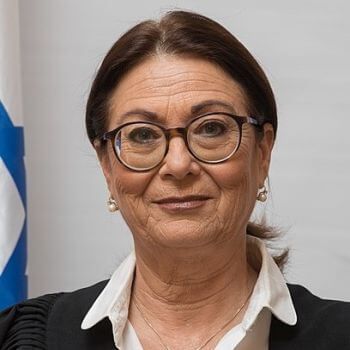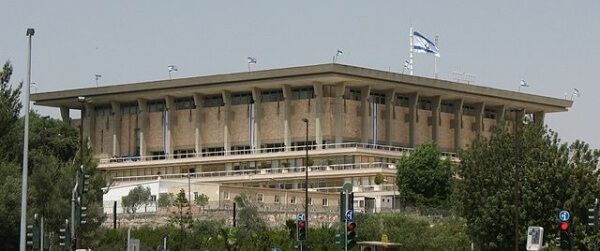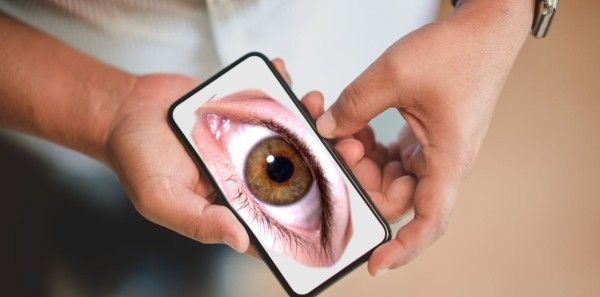The unprecedented coronavirus pandemic and the extreme measures taken to attack it directly impact Israel and civil rights.
Anytime a western democracy enters into a “state of emergency” there are concerns that civil rights might be among the victims of the emergency measures. Civil rights are easy to compact into a two-word title, but on examination we find they are wide ranging, complex and comprise vast quantities of legislation developed over the life of a country.
. . . the rights of every man are diminished when the rights of one man are threatened.
John F. Kennedy
Israel and Civil Rights
The issue of Israel and civil rights is no different. Civil rights encompass all aspects of democratic life: freedom of speech, press, assembly and worship; freedom of movement; open and fair elections; due process and the right to a fair trial; protection against discrimination and corruption; freedom to form unions and freedom to strike; the right to an education, and then enshrining all those same rights for minority groups and the disabled.
The Middle East continues to be a cauldron of unrest, but Israel continues to maintain itself as a steady and stable democracy able to maintain its basis of civil rights under challenging conditions. No, not perfectly, but then again, Israel is like all other democracies in its struggle to reach the balance between competing interests that best serves the majority of its citizens.
Join the fight for Israel’s fair coverage in the news
One of the most thorough analyses of Israel and civil rights is the annual human rights report compiled by the U.S. State Department. Although focused on human rights, the report reviews in detail the state of civil rights in Israel, given that their presence and the way they are enacted and enforced affect human rights.
Year after year, the American assessment by a team of investigators in the State Department is the same: “The law generally provides for freedom of expression, including for the press … freedoms of peaceful assembly and association … freedom of religion … the right of workers to form and join independent unions, strike, and bargain collectively … and on each the report concludes that the government of Israel generally respects this rights.”
Coronavirus and Civil Rights
Now Israel is in the grip of the pandemic. The infection rate continues growing exponentially, deaths are rising and the government has taken a series of unprecedented draconian measures to stem the growth of the infection before it overwhelms the healthcare system.
Those measures are not unlike those taken by other countries including many western democracies. The education system was shut down, non-essential businesses ordered closed, public assembly banned, places of worship closed for all religions, inter-city travel restricted and on April 8, 2020 a nation-wide curfew was imposed forcing people to stay home.
Some of the measures that suspended certain liberties like freedom of movement and assembly were put into law and enforced by the police. Thousands of fines were handed out for what would normally be perfectly legal activities – meeting on the beach or praying in a synagogue.
Related reading: Protecting Israelis With Disabilities From COVID-19
Electronic Surveillance?
For Israel and civil rights there has never been the experience of such a traumatic peacetime upheaval and suspension of civil rights, but given the urgency of the danger facing the country there was almost universal acceptance of the temporary restrictions on civil rights.
However, at the extreme end of the scale was the decision taken by Prime Minister Benjamin Netanyahu’s government on March 18 to use secret surveillance tools normally used to track terrorists – but now authorized to track ordinary citizens.
The move provoked alarm given that judicial oversight – normally required for such an invasion of privacy – was lacking. Also absent from the subject of Israel and civil rights was parliamentary oversight since the move was taken without placing the process under the supervision of a Knesset committee. Foreign Policy went as far as to say “Israeli authorities want to spy on people with the coronavirus.”
“We started using digital technology to locate people who have been in contact with those stricken by the Corona,” Netanyahu said on March 18. “This is a critical step in slowing the spread of the epidemic.”
“In all my years as prime minister I have avoided using these means among the civilian public but there is no choice,” Netanyahu said.
Civil Rights Groups Step In
The largest non-governmental organization that monitors civil rights in Israel, the Association for Civil Rights in Israel (ACRI), reacted to the government’s unchecked violation of civil liberties.
“We are monitoring the government actions to halt the spread of the virus in order to ensure that the damage to human rights is substantive, proportional, for a fit purpose, and as limited as possible, and working to secure the rights of vulnerable populations during the crisis,” ACRI said.
As government-ordered closures increased, so did their effect on different sectors of the population. ACRI and other groups moved quickly to close loopholes.
The organization Kol Zchut (Every Right) put up webpages with key information to let citizens utilize their rights during the crisis. The Israel Consumers Council opened a hotline helping consumers get refunds for goods and services canceled during the crisis.
Unemployment skyrocketed to over 25 percent and banks were closed, but the government and courts were petitioned so that electricity would not be cut off from those who couldn’t pay during the crisis. The Supreme Court was petitioned to ensure the executive branch of government could not make unchecked decisions. The government was forced to make critical announcements and unemployment assistance paperwork available in Arabic and other minority languages, and banks opened so pensioners and welfare recipients could withdraw their funds.
Related reading: Magen David Adom: First Responders Fighting Coronavirus
Pushback Against Unchecked Surveillance
ACRI legal expert Gil Gal-Mor said that while Israelis were generally willing to give up some rights to privacy in order to fight terrorists and enemies, the surveillance issue was unsettling.
With no oversight, there is no guarantee the surveillance could be abused and go beyond the issue of the pandemic. The surveillance methods are suspected of including the ability to search data on smartphones to read emails and messages, turn on the microphone and camera to eavesdrop.
“Now people find out the Shin Bet and the police know exactly where they are in any second, Gal-Mor told National Public Radio. “People are now waking up and understanding the problem of giving too much power to the government when it comes to our privacy.”
The government promised the technology would only be used in the service of the health ministry, but there have only been a handful of announcements about the efficacy of the program including uncorroborated reports that hundreds of virus carriers were identified. But the ACRI statement said:
…the marginal benefit that will come from the location data cannot justify the grave violation of the right to privacy. The danger with COVID-19 is not only the virus itself, but concern that during the efforts to overcome this threat, we will lose our basic values as a free and democratic society.

On March 18, ACRI and other groups petitioned the Supreme Court to freeze the monitoring. Their argument: bypassing the legislature and using a state of emergency as an excuse “crosses a red line no less troubling than the coronavirus epidemic itself.”
The court agreed, ordering the government to use proper procedure to invoke emergency measures.
Other arbitrary measures suspending civil rights were also successfully challenged including a decision by the justice minister to suspend the courts and police breaking up civil protests because more people were gathered than were allowed by health regulations. Although working at a reduced scale, the courts remain open and health regulations were changed to allow public protest.
For Israel and civil rights, protection of those rights extends to those infected with the virus. ACRI appealed to the Attorney General to protest extending an infected suspects’ detention, saying the detention of an innocent person “who has not been indicted at a time when he or she cannot be questioned violates the right to freedom and due process.”
Israel’s Legislative Gap
The checks and balances protecting Israel’s democracy have been evident during the coronavirus. Civil interest groups have successfully addressed issues either directly to the government or by petition to the courts. The result so far is the maintenance of civil rights under the trying conditions of a world pandemic.
From the point of view of Israel’s national strategic interests, experts noted many of the conflicts and loopholes encountered during the pandemic crisis are the result of a legislative gap.
“Decision making at this time highlights how much is lacking in the law books on essential state means and powers,” said researchers Ahaz Ben Ari and Meir Elran of the Institute for National Strategic Studies at Tel Aviv University.

Historically, national crises in Israel were all defense related and the laws were set up accordingly. Although the legislative change to establish a national crisis management system was started, it is incomplete. During the coronavirus crisis the defense establishment repeatedly called for management of the crisis to be transferred to the military from the health ministry.
“The (coronavirus) crisis has been managed so far by the Prime Minister, assisted by the National Security Council – an agency that lacks experience in civilian matters, and whose action in this realm is not mandated by law,” the INSS noted.
The unprecedented state of emergency for the coronavirus pandemic and the extreme measures taken to deal with it have indeed had an impact on Israel and civil rights. However, the strength of the government and civil institutions have mitigated that impact with the desired effect.
Related reading: The 5 Books About Israel You Must Read While Stuck Home During COVID
Israel’s government remains focused on dealing with the healthcare system and the economy, while those with a vested interest in protecting civil rights – civil society NGOs and the political opposition with the courts accessible to both – have stepped up their watchdog activities and stepped in where needed to protect shoes rights.
The result is that that overall there is public awareness of the impact the coronavirus fight is having on civil rights, coupled with the awareness that those rights are being protected as much as possible. This lets both the government and the people keep the focus on the fight to overcome the epidemic, rather than having civil rights issues obfuscate the goal.
Featured image: CC0 BY Pixabay, CC0 Unsplash and Pixabay; phone surveillance via Pexels and PngImg.com; Hayut via Wikimedia Commons; Knesset CC James Emery;


